Regular car maintenance is crucial for ensuring your vehicle runs smoothly, safely, and efficiently. By staying on top of essential maintenance tasks, you can prevent costly repairs, extend your car’s lifespan, and enjoy peace of mind while on the road.
This comprehensive guide will cover Important Car Maintenance Items that every car owner, mechanic, and technician should know. Whether you’re looking to keep your own vehicle in tip-top shape or are a professional working on cars, this information will be invaluable.
Oil Changes: The Lifeblood of Your Engine
Oil is the lifeblood of your engine, lubricating moving parts and preventing wear and tear. Regularly changing the oil is one of the most important car maintenance items to keep your engine running smoothly.
Here’s what you need to know about oil changes:
- Frequency: Most car manufacturers recommend an oil change every 3,000 to 5,000 miles. However, newer vehicles and those with synthetic oil can often go longer. Consult your owner’s manual for specific recommendations.
- Types of Oil: Different types of oil exist, such as conventional, synthetic blend, and fully synthetic. The type of oil you choose depends on your car’s needs and driving conditions.
- Signs of Needing an Oil Change: Check your oil regularly using the dipstick. If the level is low, top it off. Other signs include engine noise, a burning smell, or a decrease in fuel efficiency.
“It’s critical to keep up with oil changes,” says John Smith, a certified automotive technician with over 20 years of experience. “Failing to do so can lead to engine damage and costly repairs.”
Tire Maintenance: Ensuring a Safe and Smooth Ride
Your tires are the only contact point between your car and the road, making tire maintenance critical for your safety and driving experience.
Here’s what you need to know about tire maintenance:
- Tire Pressure: Maintaining the correct tire pressure is crucial for handling, fuel efficiency, and tire wear. Check your tire pressure regularly using a tire pressure gauge and adjust as needed. The recommended tire pressure can be found in your owner’s manual or on the sticker located on your driver’s side doorjamb.
- Tire Tread Depth: Adequate tire tread depth ensures proper grip and braking performance. The minimum legal tread depth varies by region, but most experts recommend replacing tires with tread depth below 4/32 inch.
- Tire Rotation: Rotating your tires regularly helps to distribute wear evenly and prolong their lifespan. Your owner’s manual will specify the recommended tire rotation interval.
- Wheel Alignment: Proper wheel alignment ensures that your tires are pointing in the correct direction. Misaligned tires can cause uneven wear, poor handling, and fuel inefficiency.
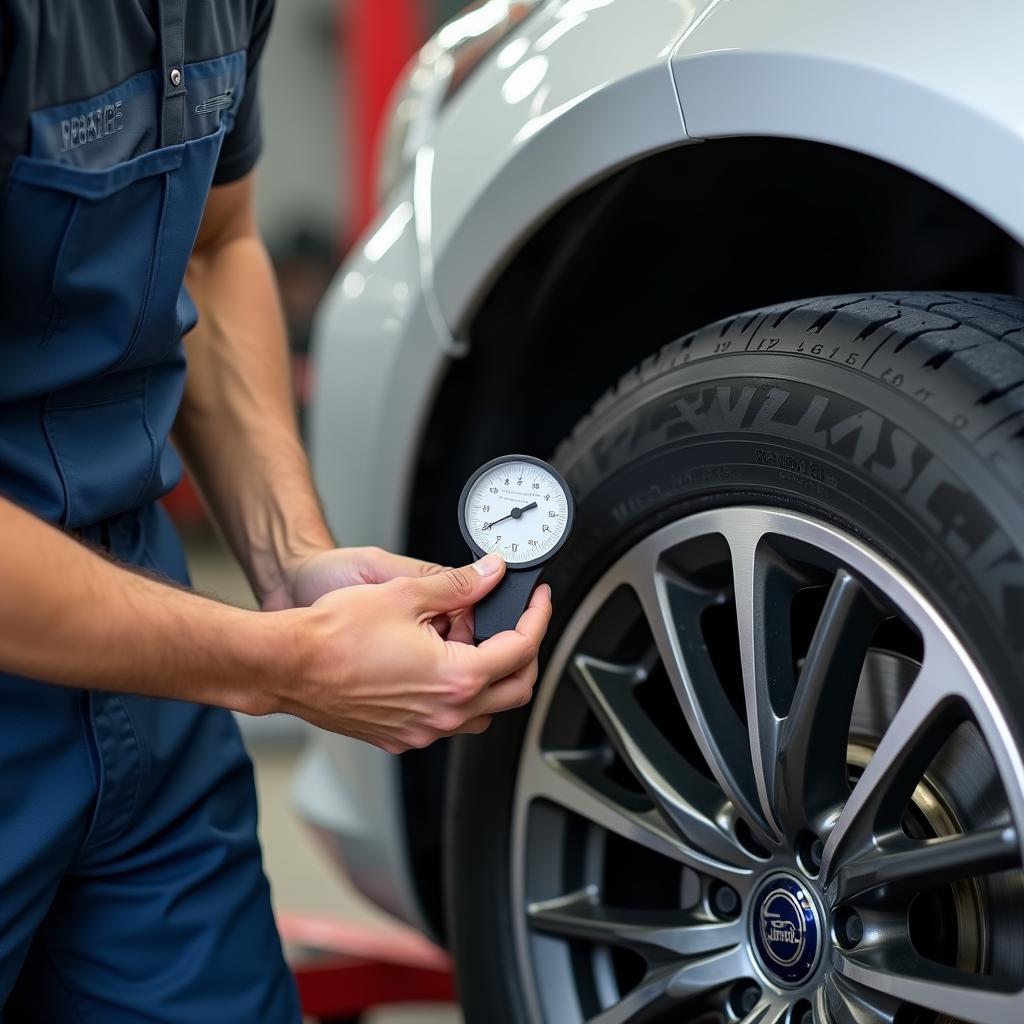 Car tire maintenance
Car tire maintenance
“Tire maintenance is crucial for safety and vehicle performance,” says Sarah Johnson, a certified automotive technician and owner of a reputable auto repair shop. “Make sure you check your tire pressure, tread depth, and alignment regularly.”
Brakes: Your Life-Saving System
Your brakes are your most essential safety system, stopping your car when you need to. Keeping your brakes in good condition is crucial for your safety and the safety of others on the road.
Here’s what you need to know about brake maintenance:
- Brake Pads/Shoes: Brake pads and shoes wear down over time with use. They need to be replaced before they wear down completely to prevent damage to the rotors or drums.
- Brake Rotors/Drums: Brake rotors and drums are the metal discs or drums that brake pads or shoes grip to slow the car down. They can become warped or worn down, requiring replacement.
- Brake Fluid: Brake fluid is a critical component of your braking system, transferring hydraulic pressure to the brakes. It should be flushed and replaced regularly to prevent moisture buildup and ensure proper braking performance.
“Regular brake inspections are essential for ensuring your safety on the road,” says Tom Davis, a certified automotive technician with over 15 years of experience. “Don’t wait for warning signs; schedule regular brake checks to avoid potential problems.”
Cooling System Maintenance: Keeping Your Engine Cool
Your engine generates a significant amount of heat, and the cooling system is responsible for keeping it at the correct operating temperature. Problems with the cooling system can lead to engine damage and overheating.
Here’s what you need to know about cooling system maintenance:
- Coolant/Antifreeze: Coolant/antifreeze is a vital component of your cooling system, absorbing heat from the engine and transferring it to the radiator. It needs to be replaced regularly to prevent corrosion and ensure proper cooling performance.
- Radiator: The radiator is responsible for dissipating heat from the coolant. It can become clogged with debris or develop leaks, requiring repair or replacement.
- Water Pump: The water pump circulates coolant through the cooling system. If it fails, the engine can overheat quickly. It’s important to inspect and replace the water pump as needed.
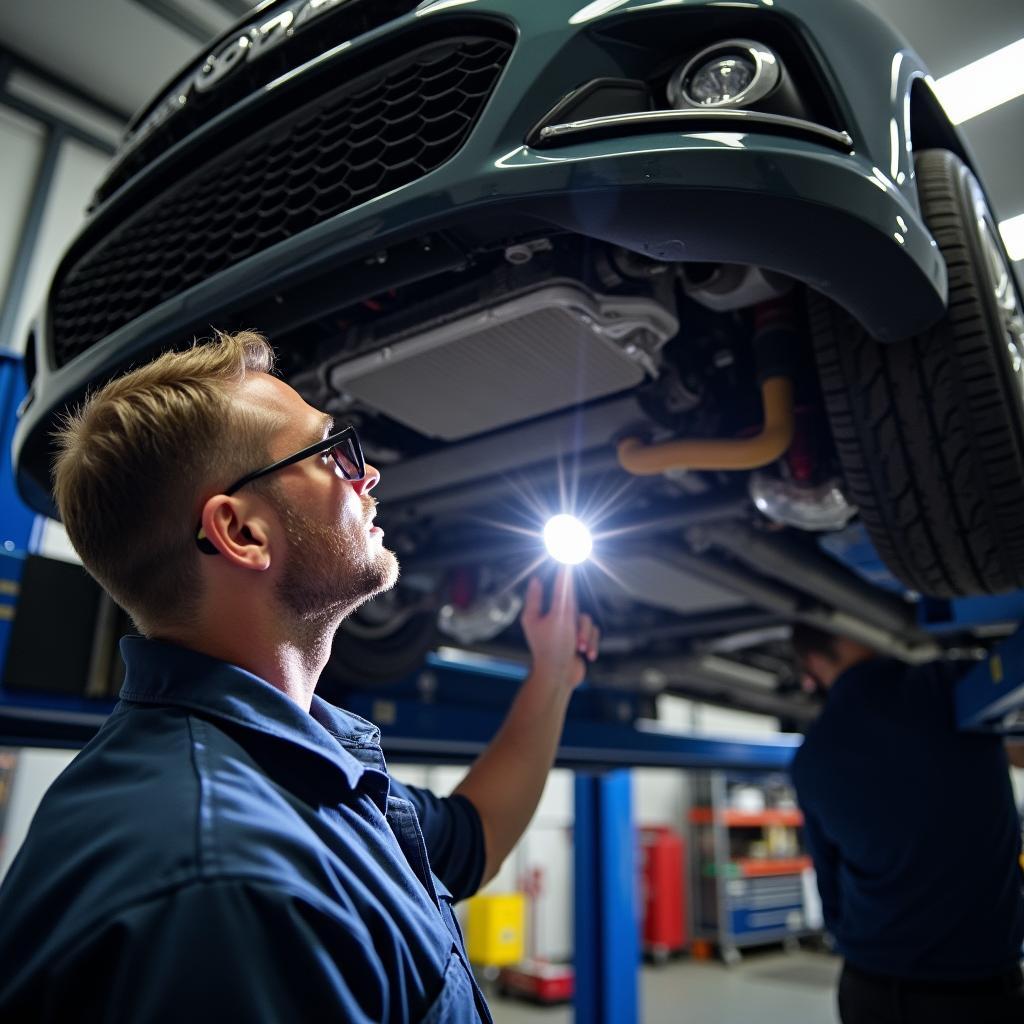 Car cooling system maintenance
Car cooling system maintenance
“A healthy cooling system is crucial for preventing engine overheating,” says Jane Wilson, a certified automotive technician and owner of a mobile auto repair service. “Make sure you check your coolant level, inspect the radiator and hoses, and keep the water pump in good condition.”
Battery Maintenance: Keeping Your Car Running
Your car’s battery provides the electrical power needed to start your engine and run various electrical systems. Keeping your battery in good condition is essential for reliable starts and proper vehicle operation.
Here’s what you need to know about battery maintenance:
- Battery Terminals: Battery terminals can corrode over time, causing poor electrical connection. Clean the terminals with a wire brush and baking soda solution to ensure good contact.
- Battery Fluid Levels: Some batteries have removable caps allowing you to check the fluid level. Make sure the fluid level is within the recommended range.
- Battery Age: Batteries have a limited lifespan. Replacing a battery before it completely fails can prevent unexpected problems.
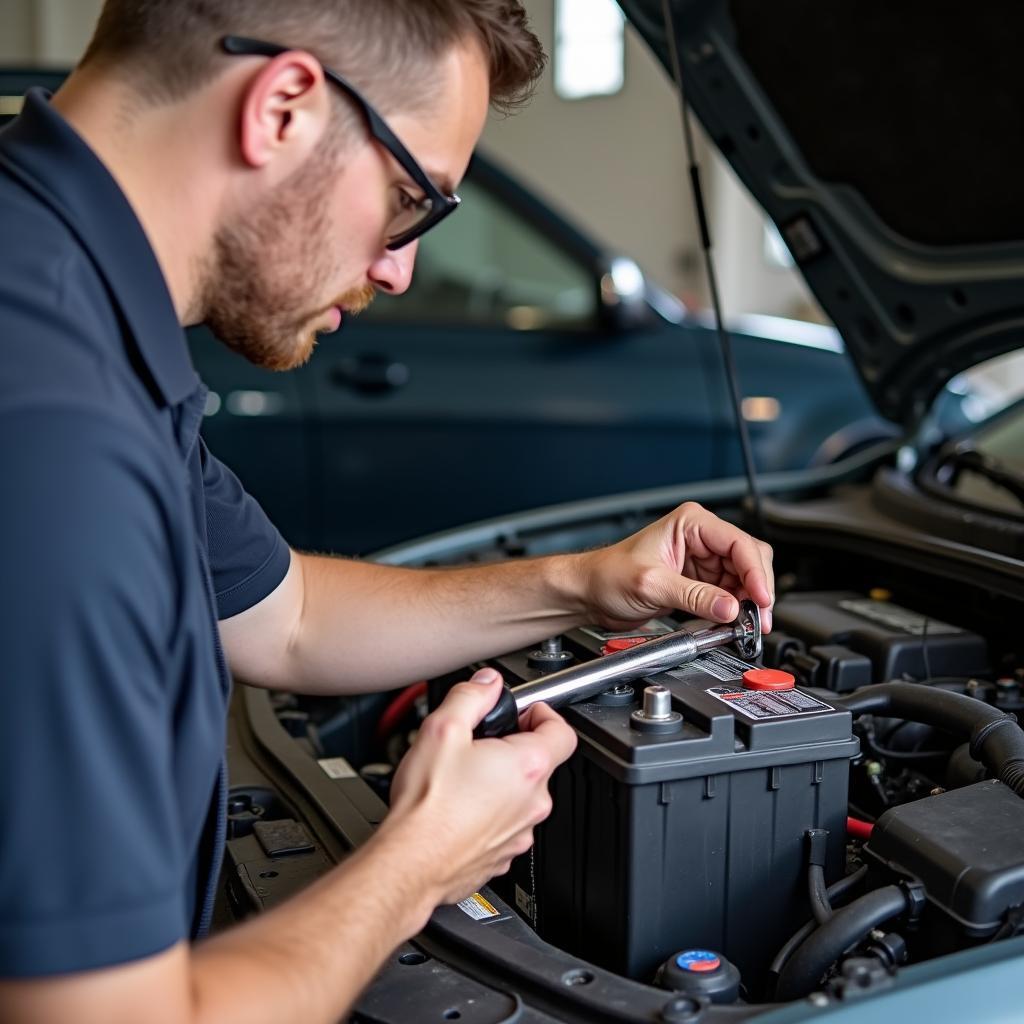 Car battery maintenance
Car battery maintenance
“A good battery is crucial for starting your car and powering its electrical systems,” says David Lee, a certified automotive technician and owner of a car dealership. “Regularly inspect your battery terminals and fluid level, and replace the battery when necessary.”
Air Filter: Breathing Easy
Your air filter is responsible for filtering out dust, dirt, and other debris from the air that enters your engine. A dirty air filter can restrict airflow, reducing engine performance and fuel efficiency.
Here’s what you need to know about air filter maintenance:
- Check the Air Filter: Inspect your air filter regularly. If it appears dirty or clogged, it’s time to replace it.
- Replacement: Replacing your air filter is a relatively simple task. You can find replacement filters at most auto parts stores.
“A clean air filter is essential for optimal engine performance and fuel efficiency,” says Linda Rodriguez, a certified automotive technician and owner of a mobile car repair service. “Replace your air filter regularly to ensure your engine is breathing properly.”
Fluid Levels: Keeping Things Running Smoothly
Your car has various fluids that need to be checked and topped off regularly. These fluids are essential for the proper functioning of different systems.
Here are some important fluids to check:
- Brake Fluid: Check the brake fluid level in the master cylinder reservoir.
- Power Steering Fluid: Check the power steering fluid level in the reservoir.
- Transmission Fluid: Check the transmission fluid level using the dipstick.
- Windshield Washer Fluid: Top off the windshield washer fluid reservoir.
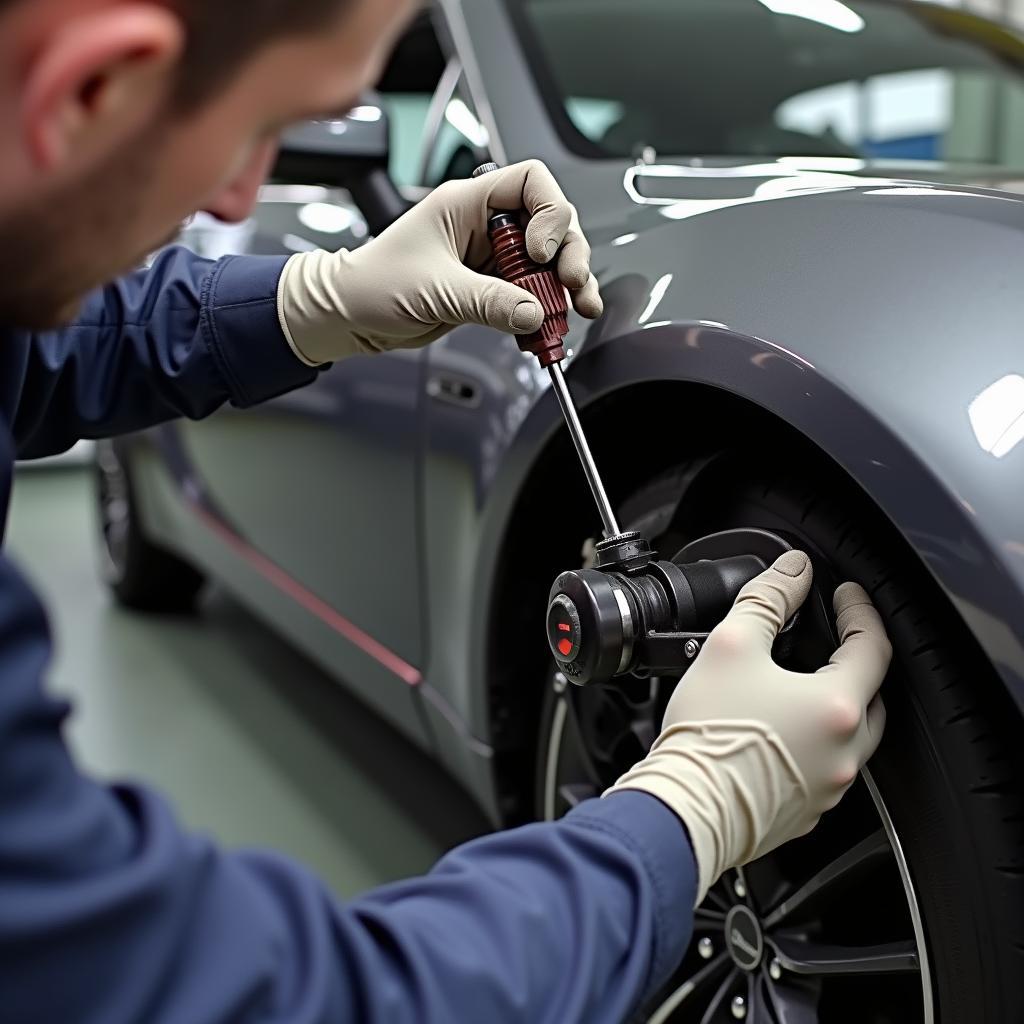 Car fluid level maintenance
Car fluid level maintenance
“Checking and maintaining fluid levels is essential for keeping your car running smoothly,” says Michael Anderson, a certified automotive technician and owner of a car repair shop. “Keep an eye on your fluid levels and top them off as needed.”
Regular Inspections: Catching Problems Early
Regular inspections by a qualified mechanic are crucial for catching potential problems early on, preventing major repairs and ensuring your car’s safety.
Here are some key areas to inspect:
- Engine: Inspect for leaks, worn belts, and other potential problems.
- Brakes: Check the brake pads, rotors, calipers, and fluid level.
- Suspension: Inspect the shock absorbers, struts, springs, and control arms.
- Tires: Check the tire pressure, tread depth, and for any signs of wear or damage.
- Lights: Make sure all headlights, taillights, brake lights, and turn signals are working properly.
- Wipers: Ensure your windshield wipers are in good condition and provide adequate visibility.
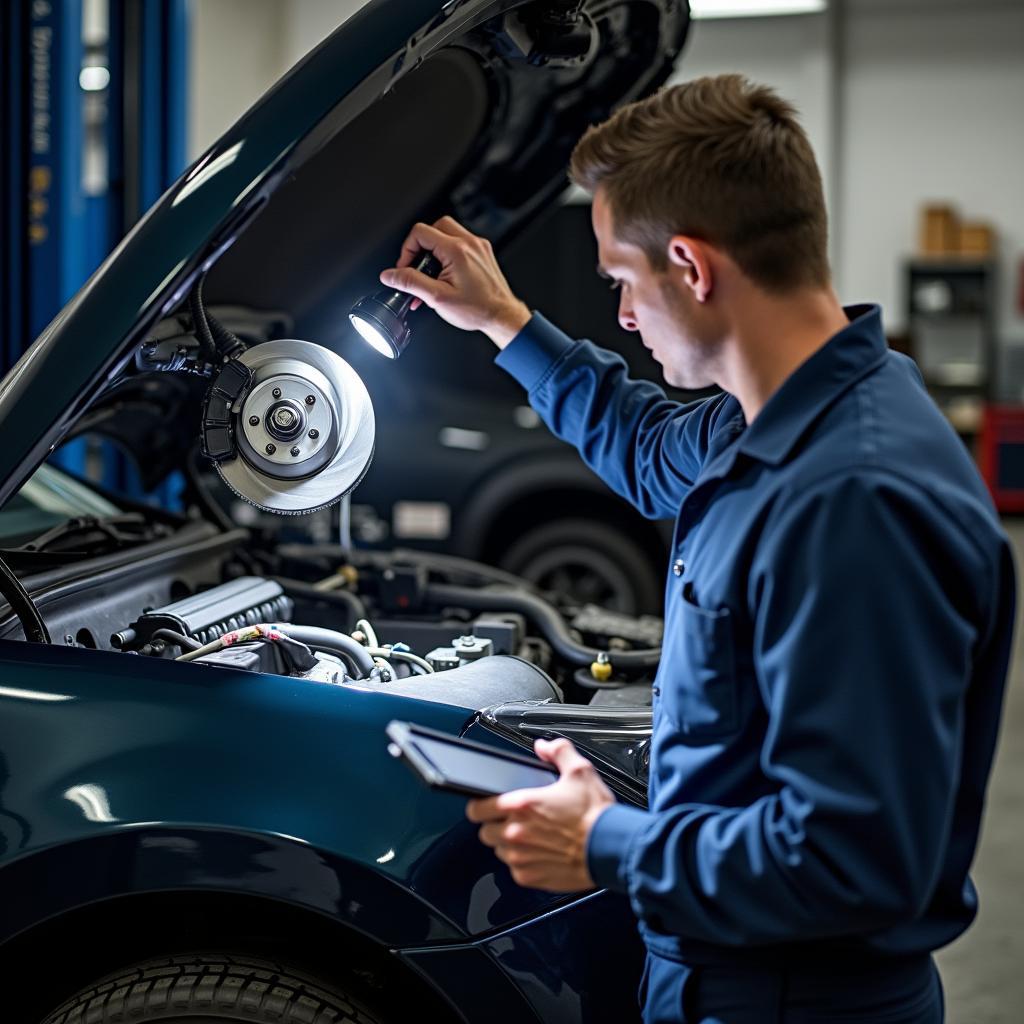 Car regular inspections
Car regular inspections
“Routine inspections are essential for catching problems early and preventing major repairs,” says Emily Jones, a certified automotive technician and owner of a car repair shop. “Schedule regular inspections to keep your car running smoothly and safely.”
Conclusion
Regular car maintenance is an investment in your vehicle’s health and safety. By staying on top of essential maintenance tasks, you can prevent costly repairs, extend your car’s lifespan, and enjoy peace of mind while on the road.
Remember to:
- Follow your car manufacturer’s recommendations for maintenance schedules.
- Inspect your car regularly for any potential problems.
- Seek professional assistance from a qualified mechanic for repairs and maintenance.
For expert advice on car maintenance and repairs, contact us at AutoTipPro.
Contact Us:
Phone: +1 (641) 206-8880
Office: 500 N St Mary’s St, San Antonio, TX 78205, United States
FAQ
1. How often should I change my oil?
The recommended oil change interval varies depending on your car’s make and model, the type of oil used, and your driving conditions. Consult your owner’s manual for specific recommendations.
2. What are the signs of a bad air filter?
A dirty air filter can restrict airflow, reducing engine performance and fuel efficiency. Signs of a bad air filter include reduced engine power, rough idling, and a decrease in fuel economy.
3. How often should I replace my brake pads?
The lifespan of brake pads depends on your driving habits and the quality of the pads. You should replace them when they wear down to about 3/16 inch.
4. What is the difference between conventional and synthetic oil?
Synthetic oil is engineered for better performance and longer lifespan than conventional oil. It offers superior protection against wear and tear, particularly in extreme temperatures.
5. What are the benefits of regular car inspections?
Regular inspections help to identify potential problems early on, preventing major repairs and ensuring your car’s safety. They also help to maintain your car’s performance and fuel efficiency.




Leave a Reply